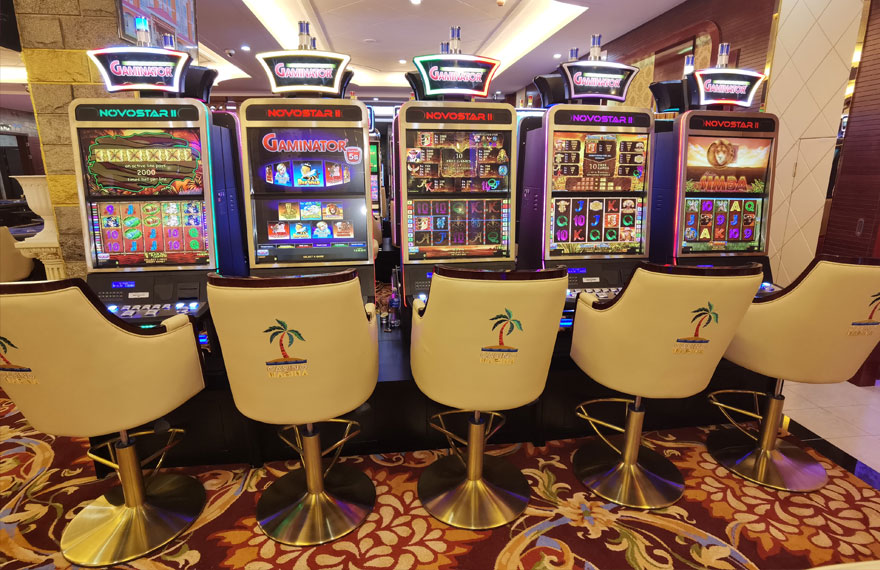
Gambling games have long been a staple in human culture, providing not just entertainment but a captivating reflection of our hopes, wishes, and anxieties. From the spinning reels of a slot machine to the skill-based strategies of poker, these games represent a range of human feelings and experiences. At their core, casino games are more than a chance to make profits; they are a microcosm of life itself, where danger and gain intertwine and fortunes can change in an instant.
As players gather around tables or sit in front of vibrantly illuminated machines, they engage in a ceremony that transcends mere playing. These games reflect our instinctive desires for relationships, adventure, and the quest for chance. They also unveil deeper truths about human nature, such as our relationship with fate and the adrenaline of risk. In exploring casino games, we discover not only the rules of play but also the intricate pattern of the human experience, showcasing our woven narratives of hope and reality.
The Psychology of Gambling
Gambling is intrinsically connected in human psychology, appealing to various feelings and wants. The excitement of risk-taking is a core aspect that draws players in, be it it’s thrill of spinning a roulette wheel or the excitement of drawing a winning card in poker. This adrenaline is frequently likened to other forms of thrill, as the uncertainty of outcomes triggers a distinct psychological response. Players often find themselves captivated by the possibility of winning big, leading to an almost magnetic draw toward gambling games.
Additionally, an essential component of the psychology behind gambling is the concept of optimism and ambition. Participants often indulge in fantasies of financial freedom and the opulent lifestyle that can accompany winning. casino non AAMS legali in italia This optimism fuels their ongoing participation in casino games, as it provides a sense of meaning and the conviction that a transformative win could be just one bet away. The narrative of beating the odds and finding success resonates with many, reinforcing their dedication to play and engage with these games.
Finally, social dynamics play a significant role in gambling psychology. Casino environments are designed to promote social interaction, where gamblers gather to share the journey of wins and losses. This shared aspect not only amplifies enjoyment but also affects behavior, as individuals often imitate the actions of others around them. The social validation found in mutual thrill can magnify the emotional experience, making casino games a mirror of not just personal desires but also shared involvement within the gaming community.
### Risk and Reward: A Double-Edged Sword
Gambling games embody the subtle balance between danger and gain that resonates profoundly with human psychology. The rush of placing a wager is often accompanied by a surge of excitement, as players are confronted with the possibility of a huge payout, yet cognizant of the potential to suffer losses. This bipartisan experience reflects a essential aspect of life: the choices we make often come with built-in risks, and the chase for gain can compel us to make risky moves we might not otherwise consider. In this way, casino games mirror real-world choices, enticing gamblers to gamble not just their funds, but also their dreams.
The allure of jackpot prizes and winnings fuels a sense of optimism, inspiring gamblers to envision a more promising future that could arise from a fortunate turn of the wheel or flip of a card. This optimism can drive individuals to engage in greater risks, pushing them to extend their limits in search of monetary success. However, just as in life, the results of these decisions can lead to both victory and loss. The stories of both big winners and those who have lost everything at the tables demonstrate the random nature of luck and its impactful repercussions on our futures.
Ultimately, the interaction of engaging with gambling activities serves as a vivid illustration of the nature of humanity. Every game played is filled with the tension of ambiguity, as players weigh the gains against the risks. This dynamic not only highlights the thrill that comes with betting but also exposes the risks that come with the longing for more. As we explore the complexities of choice and results in both the gambling world and in life, we find that the search for benefit shapes our sense of self and experiences in significant manners.
Culture and Solitude in Gambling Culture
Gambling culture is a special mix of communal interaction and personal endeavor, reflecting the tensions of human experience. Players often gather around tables, sharing in the thrill of the game, celebrating wins, and sympathizing over losses. This social aspect is essential, as it fosters a sense of community and bonding among varied groups of people. Regular attendees to casinos may form friendships and develop routines, turning the gambling venue into a alternative home where they feel connected to a larger community of gamblers.
However, the attraction of gambling games can also lead to loneliness. As individuals become immersed in the thrill of gambling, they may isolate from personal relationships or neglect to engage with the environment outside the gaming space. For some, the pursuit of a jackpot can distract from genuine relationships, leading to isolation. The situation of being among others yet experiencing solitary is not rare, as the focus shifts from collective fun to the individual stakes of each player’s journey.
This interaction of society and solitude creates a vivid mosaic that defines gaming atmosphere. It showcases the complexity of human interactions, where joy and despair coexist. Casinos serve as both a refuge for social engagement and a stage for individual challenges, illustrating how intimately entwined our yearning for companionship and the individual quest for wealth can be. In navigating this environment, gamblers confront their own narratives—seeking both the rush of the wager and the fellowship of other gamblers, ultimately reflecting the wider spectrum of individual experience.